Philippe Gilbert: For me it's all about winning
An exclusive interview with the Belgian Classics winner
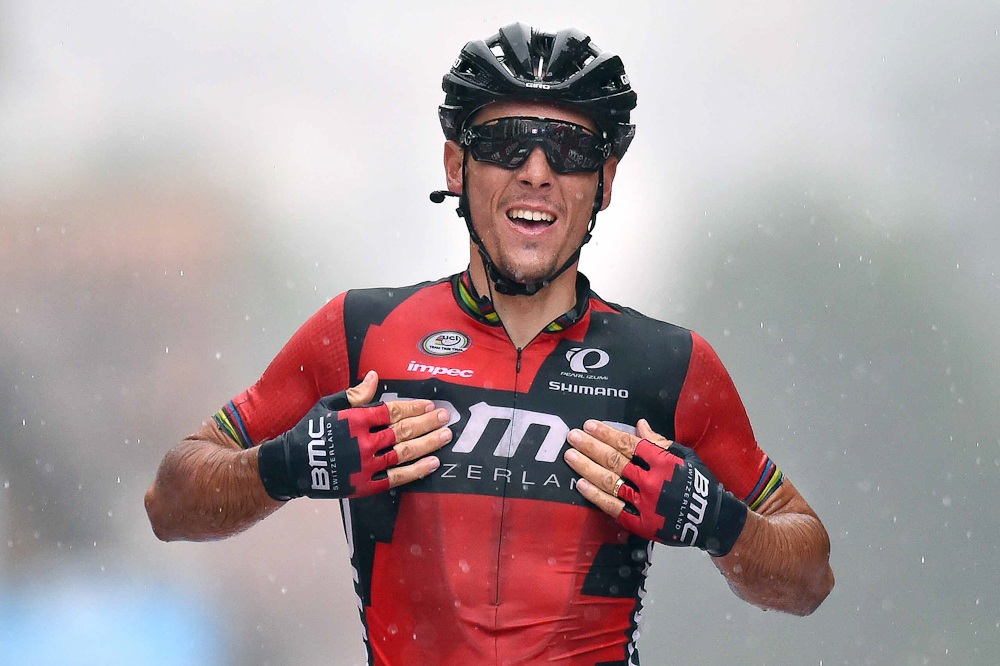
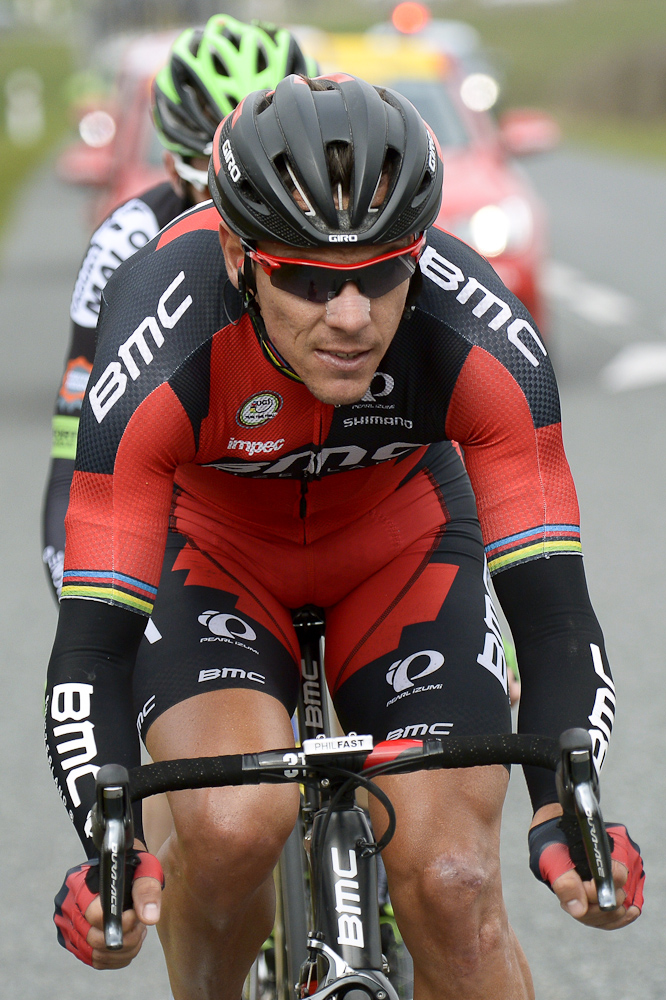
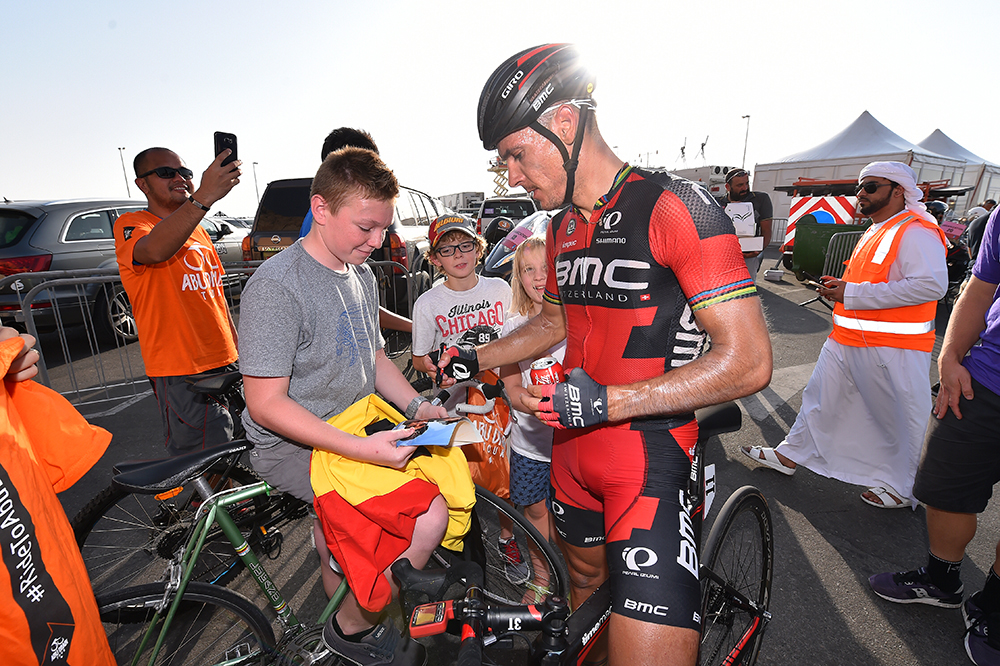
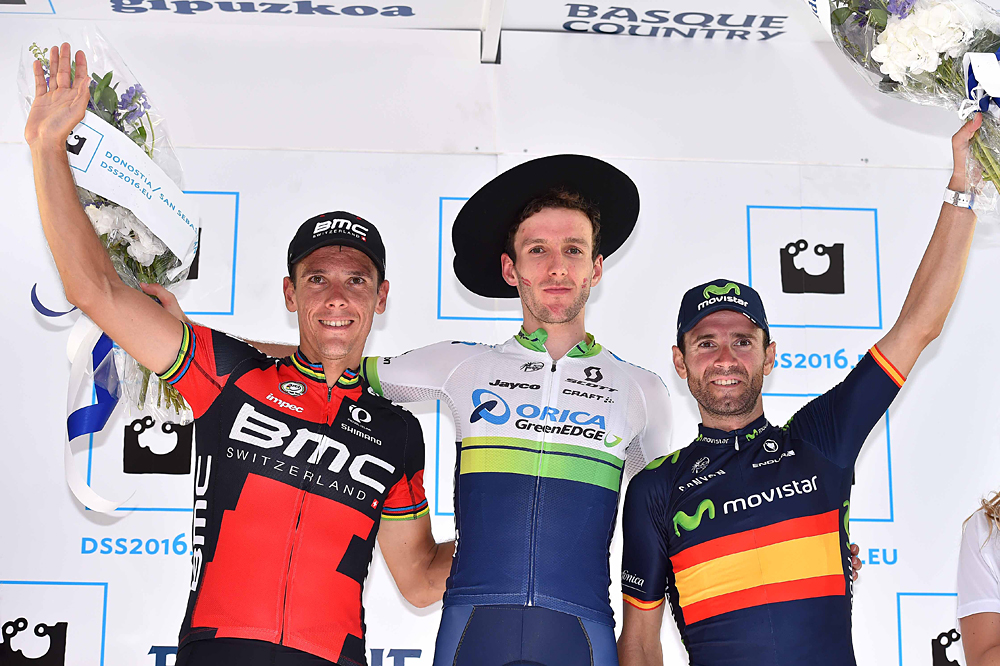
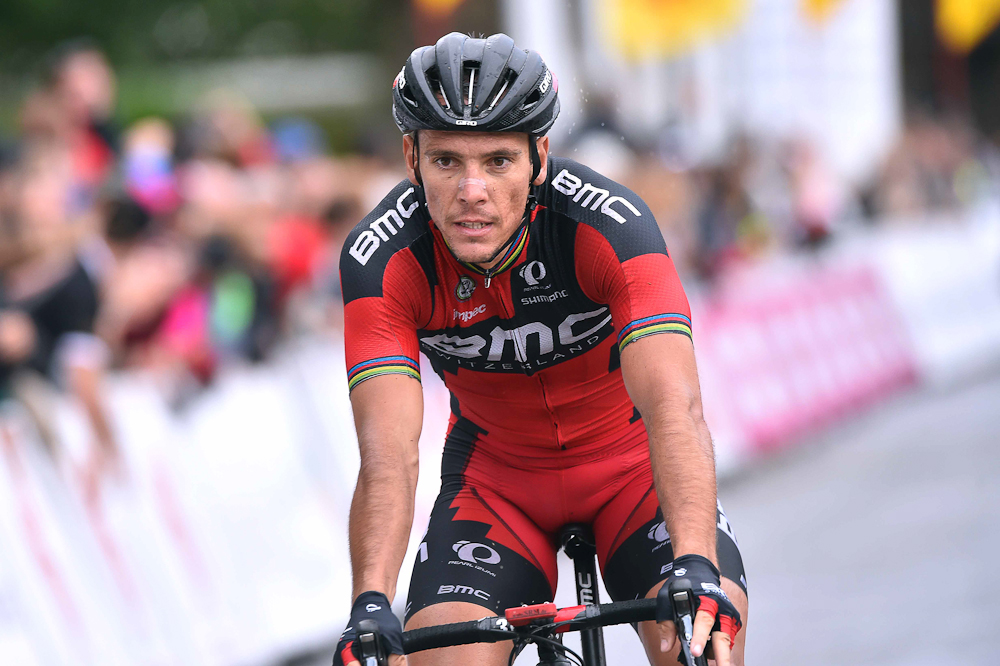
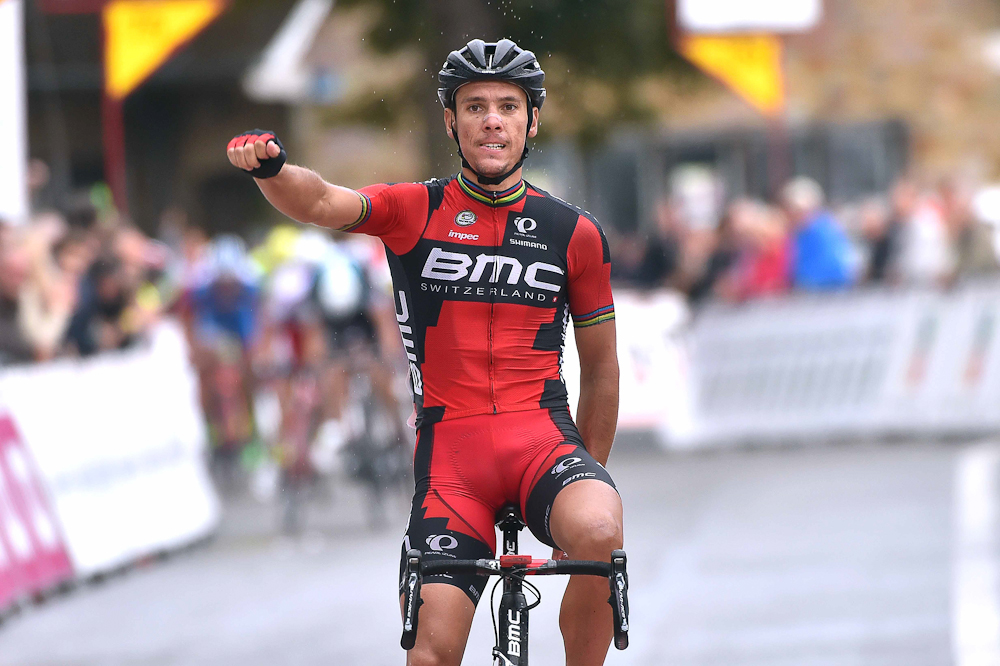
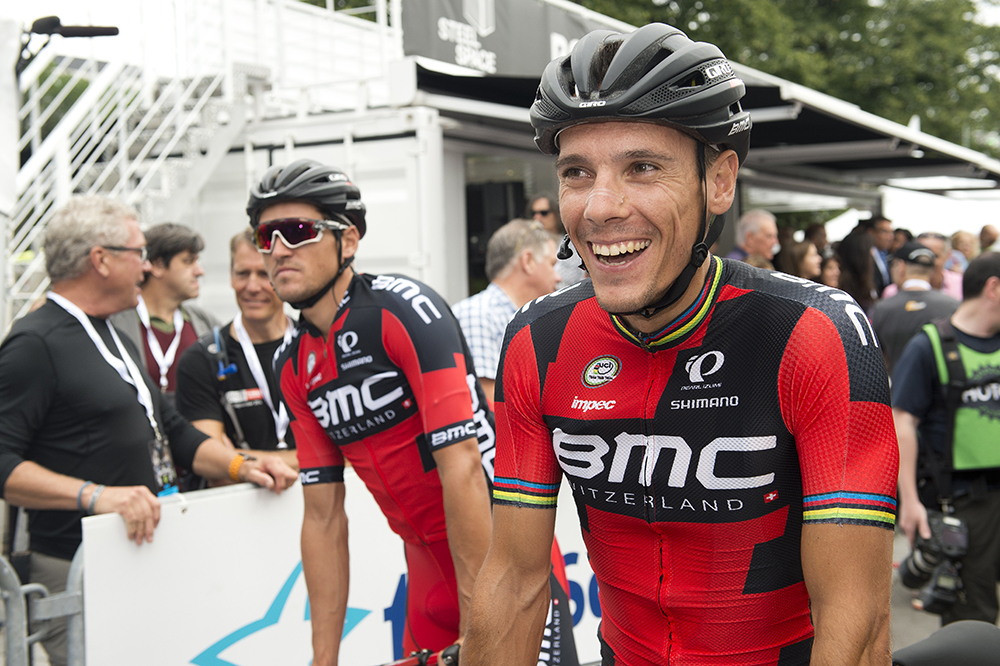
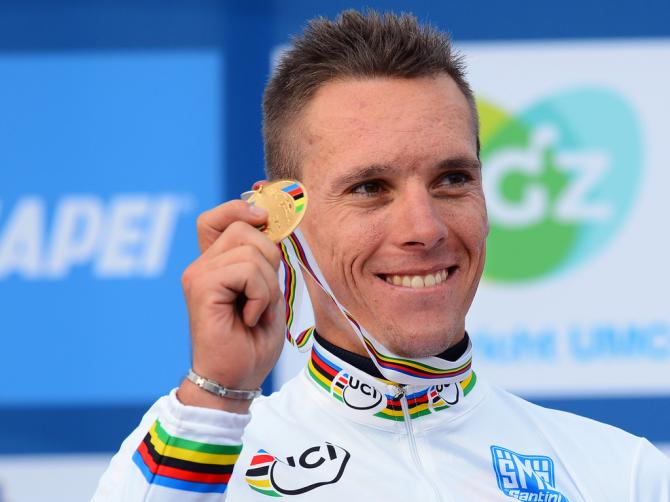
Philippe Gilbert ended his 2015 season at the Abu Dhabi Tour, bringing down the curtain on the 15th season of his career. The French-speaking Belgian won the world title in 2012, and has been a Classics contender and Classics winner for close to a decade. His palmares includes three victories at the Amstel Gold Race, two victories at Il Lombardia and Liege-Bastogne-Liege. In a magical season in 2011, he completed the Ardennes triple, winning the Amstel Gold Race, Fleche-Wallonne and Liege-Bastogne in the same week.
This year Gilbert’s Classics campaign was wrecked by a series of crashes, but he fought back to win two stages at the Giro d’Italia. He missed the Tour de France following the discovery of a micro fracture in his tibia but recovered to finish second at the Clasica San Sebastian.
As he explains in this interview, winning is still all that matters despite his age and the complexities and unpredictability of the one-day Classics. Gilbert turned 33 in July but still considers himself a team leader at BMC. Gilbert can be proud, prickly and caustic in interviews but is never afraid to speak his mind about the race tactics of rivals such as Alejandro Valverde, rider safety or the pain, pressure and expectation that is part of being a big-name professional rider.
Cyclingnews: The winter is traditionally a time to look back at the season. Are you happy with your 2015?
Philippe Gilbert: Yeah, I’m happy, even if I regret crashing in Fleche Wallonne because it cost me a big chance to win either Fleche or Liege-Bastogne-Liege. I really had the legs and had done the hard work.
At Amstel in the end it was almost done, I was close to winning for a fourth time but Michael Matthews killed himself to follow me and killed his own race. In a finale like that (on the Cauberg), even a little difference makes a difference between winning and losing. If you can get away alone, it’s usually done. But that’s racing.
CN: There were some suggestions after the race that you weren’t as strong as you once were.
Get The Leadout Newsletter
The latest race content, interviews, features, reviews and expert buying guides, direct to your inbox!
PG: (laughs dismissively…) That’s not the real story. Matthews was there and even pulled a little bit, which was smart, but when Valverde came up to us, he (Valverde) stopped working and that really killed our race. Matthews had to do something because he was able to follow me and couldn’t just let me go, so why not? But the truth is that we should have ridden even faster to stop Valverde getting on to us, then we could have fought for the win. I think Matthews worked with me until at least 500m from the line and we would have saved the win. I think that’s the best way to race. You have to save your chance to win and then play games, not first play games and then regretting it.
CN: Valverde always seems to ride very tactically.
PG: That’s true. I don’t really understand it. I think his goal is to be number one in the (WorldTour) ranking, not winning races… He’s won the WorldTour four times and so perhaps it is special to him…
CN: The way a classic race can be decided or change in a moment can be a bad thing for a rider but also makes the Classics so special. Do you agree?
PG: I understand that feeling. You have to work a lot to be good for the Classics but you’re never sure of winning and things can change in an instant. It’s not like a Grand Tour. I think the guys like Chris Froome and Alberto Contador pretty much know if they’re going to win or not at the start of a Grand Tour. They know their power and the ability of their team. It’s easier to know if you can win because there’s an uphill finish and then a time trial, then another mountain finish. If your watts are good, if you stay healthy and avoid crashing, then you know that you can win. In a Classic, you just don’t know, you never know what can happen.
CN: Does that make it more difficult to accept defeat? Does it make it more satisfying when you win?
PG: For sure it makes it better when you win. When you win it means you were 100 percent with everything. It’s different.
CN: Your spring Classics campaign was difficult because of crashes. It’s easy to forget that you also crashed on the descent of the Poggio in Milan-San Remo.
PG: The whole spring was bad for me… I worked hard and was in good shape, ready, then at the end I had nothing. Just problems after the crashes, because they were two big crashes. On television crashes rarely look as bad as they were really serious. They hurt. I suffered a lot but you’ve got to somehow bounce back. You start by working on yourself, mentally recovering from the pain and disappointment, and then you start training again. But you lose perhaps 20 or 30 percent of your form. You have to reset everything and that’s very hard mentally.
Safety in the peloton
CN: Fleche-Wallonne seemed like a crazy race this year as a consequence of the changes to the route. Do you think they changed too much? Is it now too crazy?
PG: They’ve changed it a lot and made it perfect to have big crashes… They have big roads at the beginning and so everybody freewheels for 100km. Then you come to the climbs, every one is fresh and you go from big roads to small roads. It goes from big to small, big to small, big to small. Some of the changes are at 85km/h and have a left corner where you go from a 15 metre wide road to a five metre-wide road. It’s normal that you get a crash. I think they have to change it. Fortunately, I think they realised it and I think it’s something they’re looking at.
CN: Your team manager Jim Ochowicz has expressed concerns about safety in the peloton. Is it getting worse?
PG: Yeah, for sure. But the roads are also changing. I think the best thing we can do is go to the people who make the roads, the councils, the local authorities.
Ten years ago there was only a lot of traffic furniture in Holland and we knew it would be a disaster with the roundabouts and traffic islands when we went to races there. Now we’ve got the big roundabout in France; they’ve built millions of them. Now in Belgium it’s the same and in Italy too. There’s more and more, with things like speed bumps too. I think the only way to change this is to work with people involved in the local politics and change the rules for road design in Europe. It’s not only for cyclists but for motor bikers too. It can be very dangerous for them too.
'For me it's all about winning'
CN: Did your second place in the Clasica San Sebastian or your good overall performance at the Eneco Tour make your season seem better after the disappointment of the spring?
PG: No. I don’t ride for placings. I’m not interested in second place, third place or fourth place. That’s losing. For me it’s all about winning. Maybe in 10 years time I’ll look back and I’ll count the times I was on the podium in a big race. But at the moment I don’t care about them. I just ride to win. Of course I try to do my best and take second if I can’t win. But first of all I try to win. That’s how I try to ride a race.
CN: Is that what keeps you hungry? You’re 33 years old but you still seem at the peak of your career.
PG: I’m still good. I was ready to go for big results in the spring Classics but it didn’t happen. But I was good for the Giro d’Italia because kept working hard after the crashes. It means you have less time to enjoy your life but I won two stages, which is a good result against all the sprinters and Grand Tour riders.
I don’t feel old even if I’m 33. I have to touch wood that while I’ve crashed a few times, I’ve never crashed hard. If I had three or four seasons like this year, maybe I’d see things different but I’ve never had big problems.
CN: will 2016 be an important season for you?
PG: Yeah. It’s an Olympic year and there are the world championships in Qatar, so it’s going to be a strange season. I don’t know yet where I’m going to start racing.
CN: Is the Olympic road race a possible objective?
PG: I’m not sure. The coach from the BMC team Marco Pinotti is going to go to Rio and study the course. If he tells me it suits me, I’ll believe him. The Belgian team raced there but for them even a bridge seems hard… Everyone’s opinion is different depending on where they’re from. For an Italian even a route with 5000m of climbing is not hard, for a Belgian rider it’d be very tough. You have to know yourself. I’ll trust Pinotti.
CN: Would you want to be team leader for Belgium in Rio?
PG: Leadership and responsibility is a complex issue. It’s easier to win when nobody expects you to win. It’s harder when you’re a big favourite. When everyone works for you, you also have the responsibility of making it happen. That’s a big difference and repeating success is even harder. You can’t relax when you win because the guy who was second behind you wants to beat you. You have to always refocus. That’s the position I’m in and so when I don’t win people ask why and think I’ve failed. But I’m used to it and ignore it.
CN: Will the Classics be a big moment as usual?
PG: For sure. But I don’t know if I’ll also ride the Giro, the Tour or the Vuelta. I want to ride one but I’m not sure which one.
CN: Do you want to ride the cobbled Classics too?
PG: It’s hard to choose my big goals of the season because I like the cobbled Classics and I like racing hard. I like any kind of racing and that makes every decision difficult. But cycling is becoming more and more specific. In the past it was possible to target virtually all the Classics but now it is different, even for me. It’s also normal that the team wants to have the best riders in every race. That’s makes it harder form me to target the Tour of Flanders. I’ve finished on the podium in Flanders twice and I want to try again to win it. But when I can, I don’t know.
CN: You have a contract for 2016. But the future of the team beyond next season is unclear. Is that an issue?
PG: I know they’re working hard for the future of the team. I think we’ve played our part by winning some good race in recent years, I think the BMC team can give a lot to sponsors. We won the team time trial world title again and I think BMC is a good team to invest in.
CN: Finally, after over 80 days of racing, it's time for your holidays. What do you do to relax?
PG: For me a holiday is spending time with the family and especially my two boys. Of course things never really stop. The first training camp starts on December 10 and it’s coming quick. If you go there with five klios too much, you have a problem. You have to be serious all year.

Stephen is one of the most experienced member of the Cyclingnews team, having reported on professional cycling since 1994. He has been Head of News at Cyclingnews since 2022, before which he held the position of European editor since 2012 and previously worked for Reuters, Shift Active Media, and CyclingWeekly, among other publications.